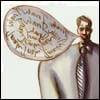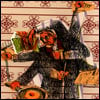His guitar never straying far from his grip, Chabad-Lubavitch Rabbi Yair Kalev has been singing for 25 years, belting out soul-searching melodies while at the same time giving lectures to crowds of hundreds across Israel and the globe.
It's a style he calls "speaking from the soul."
"Please assist me here," Kalev says in Hebrew to some 250 teenagers and 20-somethings who are gathered in the heart of Tel Aviv for his weekly class. "Let us sing a melody from Reb Hillel of Paritch," otherwise known as Hillel of Malisov, who lived from 1795 to 1864 and was a disciple of the Third Lubavitcher Rebbe, Rabbi Menachem Mendel, of righteous memory.
"Every melody is a journey," he tells them after 20 minutes of singing three of Reb Hillel's compositions to the accompaniment of the humming crowd. "You can feel from the melody that this is an individual who spiritually refined himself to be a better person."
Continuing with his lecture, Kalev asserts that "we are here to create light. There lives inside of us a constant struggle between our innate desire to do good and our drives to indulge in what is not moral or good."
"The individual needs to make peace," he says, "peace between the two opposites, to channel the negative instinct [and get it] to join in doing positive things."
The inspiration for the teachings comes straight out of the Tanya, the fundamental text of Chabad Chasidic thought written in 1798 by the Alter Rebbe, Rabbi Schneur Zalman of Liadi, of righteous memory. But the dialectic for the classroom is rooted in Kalev's personal life.
"I discuss with my audience the internal challenges of my everyday life," he shares in an interview after the class, "and share with the others how to overcome these difficulties by applying the teachings of the Tanya.
"Tanya touches upon the most sensitive parts of the human psyche," he adds. "We are each convinced that we are the only ones who struggle in life. But the Tanya assures me that the conflict is totally legitimate."
The goal, he explains, is to use the powers of one's "other side" – his or her base desires – and channel them into performing good deeds and living a G‑dly life.
Getting to Know Yourself

"We began to learn Tanya and other works of Chassidism in the morning," relates Kalev. Despite Blizinsky's age and obvious masterful grasp of the subject matter, "he never spoke down to me. I did not feel like he was trying to influence me. He would speak to me about his personal life.
"He told me once, when I was very angry at a certain individual, 'My entire life I try not to be the one who is always right,' " continues Kalev about Blizinsky, whom he says was his closest friend. " 'In our own minds everyone else is the one who is incorrect and imperfect.' He told me that if a Chasid gets angry at another person, even if technically justified, he is upset at himself the next day," because he allowed himself to show anger.
"He taught me that we need to refine ourselves."
A gifted musician, Kalev taught musicology in Ramat Gan, and at one point in the mid-1980s was asked by a Chabad-Lubavitch emissary to give a class on the Tanya in his Chabad House.
At first resisted, but then remembered a teaching of the Rebbe, Rabbi Menachem Mendel Schneerson, of righteous memory: Even if an individual knows only one letter of the Hebrew alphabet, he is responsible to share it with someone who doesn't know it.
Since then, he's been teaching young adults all over the world about spirituality through the medium of song. He didn't realize the true impact of his classes until a recent event in his backyard in Kfar Chabad, where he lives, marking his recovery from a heart attack several months back.
Hundreds gathered for the occasion, coming from Eilat to Safed to pay tribute to the man who had taught them every week.
At the party, Kalev spoke about the Chasidic concept of "think good and it will be good," and promised to continue and expand his classes.
Buoyed by the knowledge that many in his classes feel that the Tanya is speaking directly to them, Kalev says that more people need to learn the text.
"In essence, we all share the same challenges in life," he explains. "We just need to recognize who we are deep down and find ways to face the challenges. The Tanya guides us there."







Start a Discussion